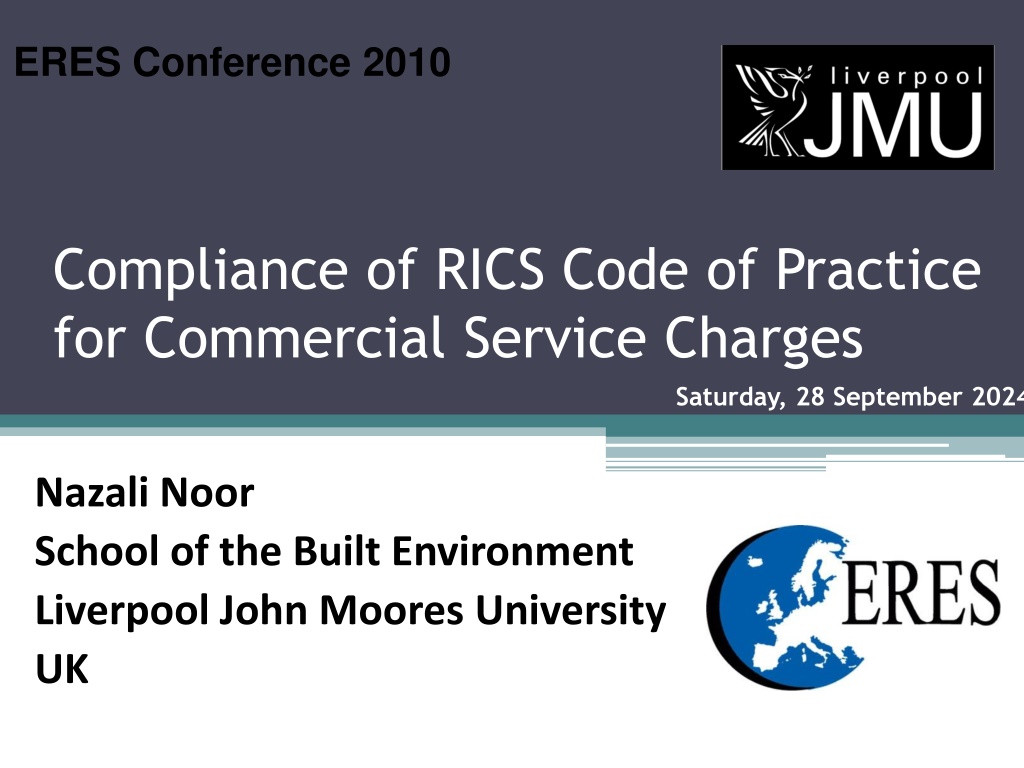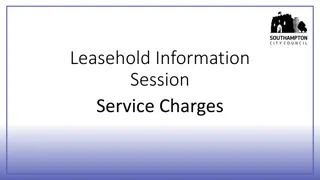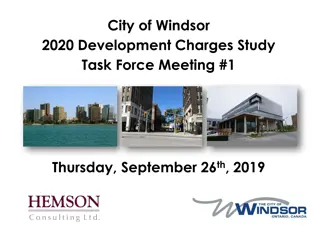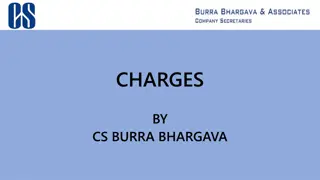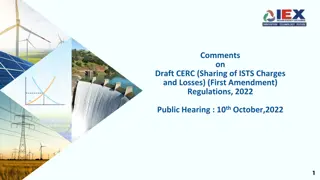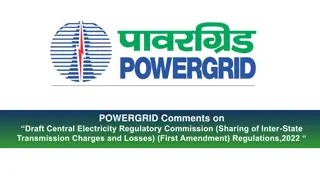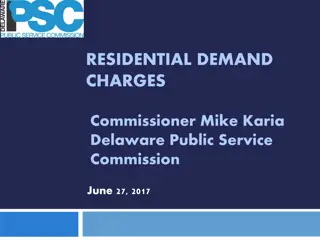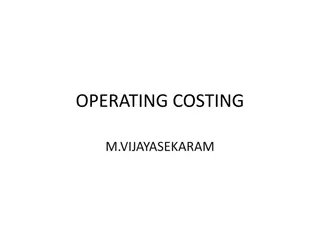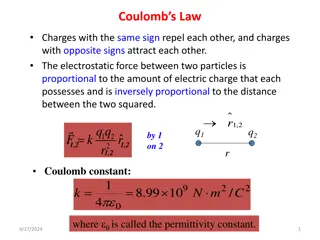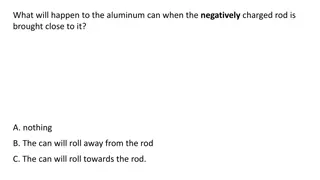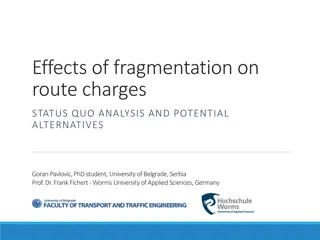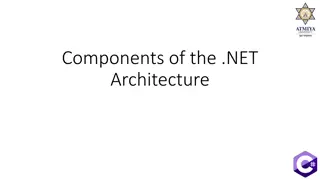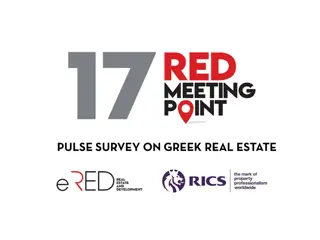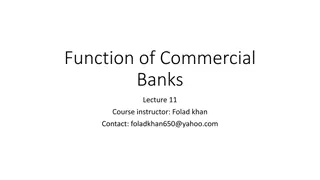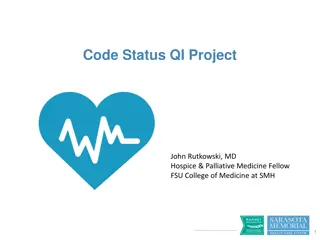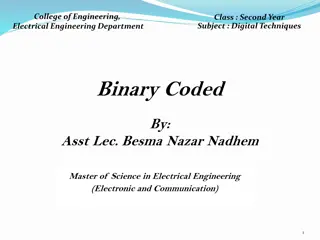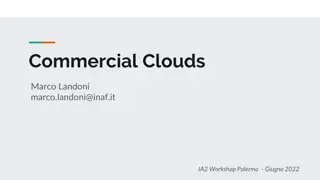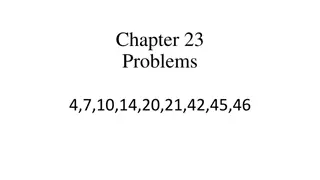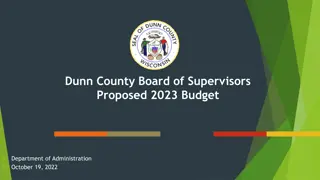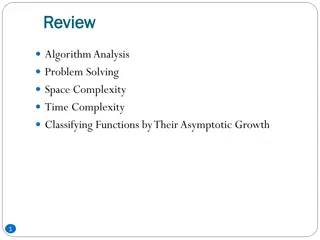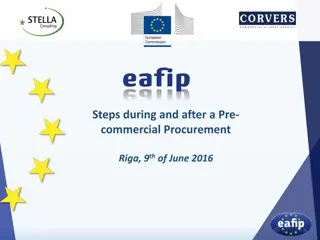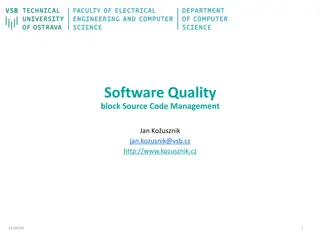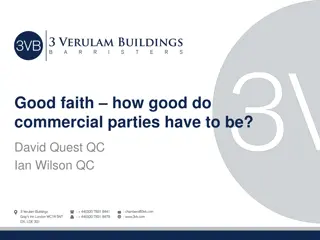Understanding UK Commercial Service Charges: RICS Code of Practice and Proposed Solutions
This presentation delves into the compliance of the RICS Code of Practice for Commercial Service Charges in the UK. It covers key issues, such as confusion over service definitions and the ideal scenario for service charge management. The document highlights the importance of transparency, communication, and value for money in the context of commercial property service charges. Additionally, it discusses key facts about UK commercial service charges, proposed solutions, and achievements made so far in budget accuracy and apportionment basis clarity.
Download Presentation

Please find below an Image/Link to download the presentation.
The content on the website is provided AS IS for your information and personal use only. It may not be sold, licensed, or shared on other websites without obtaining consent from the author. Download presentation by click this link. If you encounter any issues during the download, it is possible that the publisher has removed the file from their server.
E N D
Presentation Transcript
ERES Conference 2010 Compliance of RICS Code of Practice for Commercial Service Charges Saturday, 28 September 2024 Nazali Noor School of the Built Environment Liverpool John Moores University UK
THE PRESENTATION FLOW Overview on UK Commercial Service Charges What is set in the Code? What is achieved so far? Conclusion
THE ISSUE WITH COMMERCIAL SERVICE CHARGES Source: Calvert (2005
IDEAL SCENARIO SERVICE CHARGE BUILDING OWNERS PROVIDES FACILTIES TENANTS ENJOYS FACILITIES BUILDING OWNER TENANTS Services Issues: Perception Expectation Value Cost vs Value Willingness Quantity Quality Transperancy Communication Services Issues: Service Variables Quantity Quality Pricing/Charge Delivery Apportionment Basis BEST VALUE SERVICE Not for profit, not for loss Value for money
Key Facts on UK Commercial Service Charges Annual value of commercial service charges (for offices alone) is estimated at 4.32 billion (Calvert et al., 2009) UK commercial service charges are not governed by any legislation strictly by interpretation of the lease (Noor ad Pitt, 2009) Long outstanding issues apportionment, value for money, management fees, transparency and administration are among the known areas of disputes (Noor and Pitt, 2009)
Proposed Solutions? RICS code of practice for service charges in commercial property was introduced and come into force in April 2007 Almost 90 recommendations divided under 6 main headings that are recognised as area of disputes Management, Communication, Transparency, Service standards and provision, Administration and Additional Shopping Centre Services
What is achieved so far? Calvert et al (2009) 14% Budget accuracy- Budget should be within 2% of actual costs 15% 47% 79% Apportionment basis clear 26% Interest must be credited to service charge accounts 13% 22% 18% Management fees must be a fixed cost 24% Certificates must be delivered within 4 months of the end of the year 21% 12% Budgets must be delivered one month prior to the start of the year 4% 0% 20% 40% 60% 80% 100% Achievement 2008 (since publication in June 2006) Achievement 2006 (1998 to 2006)
Other Calvert et al (2009)findings -Reduction in standard cost headings from 2,394 (in 2006) to 2,094 (in 2008) -However it is still way above the standard as set in the Code (maximum 22 headings) No significant improvement achieved since it s inception in 2006 and implemented in 2007 Positive signs of improvement but the pace is too slow. Way below the best practice standards as set in the Code. Self-regulatory enforcement for the Code is yet to get positive response from commercial property stakeholders. Probably it is too early to gauge its performance (only 2 years from it was introduced)
Other findings Service Charge budget and certification: - Budget: Only 12% budget arrived one month earlier prior the financial period. - Certificate: Only 24% arrived within the 4 months period as set by the Code. - Shockingly even 6.5% arrived 20 months AFTER the financial year ended. - 52.6% failed to comply the set 2% variance on budgeted vs. Actual service charge figures Management Fees, Basis of Apportionment and Standard Cost Codes - Only 16.2% complied to Code requirement of Flat Management Fee Structure - Most of the certificate are still using the percentage fee method - Reduction in percentage on compliance to basis of apportionment (only 62% in 2008 as against 79% in 2007) -Very little progress on adhering the 22 cost headings for service charges Interest and Service Charge Accounts - 20.5% of service charge certificate shows interest credits ( 7 million credited back out of 65 million potential interest payment). - Lack of transparency in refunding the service charge interest. - Calvert (2009) put up 3 recommendations; a. To operate separate interest bearing accounts for all service charge payments b. All interest received from this account to be credited to the service charge account c. All costs of operating back accounts (i.e borrowing to fund the shortfall) are separately identified in the certificate
Source: adapted from Property Industry Alliance and Corenet Global UK (2009)) Source: adapted from Property Industry Alliance and Corenet Global UK (2009)) Source: adapted from Property Industry Alliance and Corenet Global UK (2009)) Source: adapted from Property Industry Alliance and Corenet Global UK (2009)) Source: adapted from Property Industry Alliance and Corenet Global UK (2009)) Occupier satisfaction of value for money gained from service charges 60% 50% 49% 50% 44% 40% Negative Positive 30% Linear (Negative) Linear (Positive) 21% 20% 13% 10% 10% 0% 2007 2008 2009 Source: Adapted from Property Industry Alliance and Corenet Global UK (2009) in UK Occupier Satisfaction Index 2009
Conclusion Huge gap exists towards full compliance of RICS Code Even though the are signs of positive progress but the speed of response are too slow. Value for money, transparency, lack of communication, speed of response and lack of flexibility are still remain the critical issues in commercial service charges It is only practical to assume that the base line as set by the code will significantly improved after 5 years of its inception.
